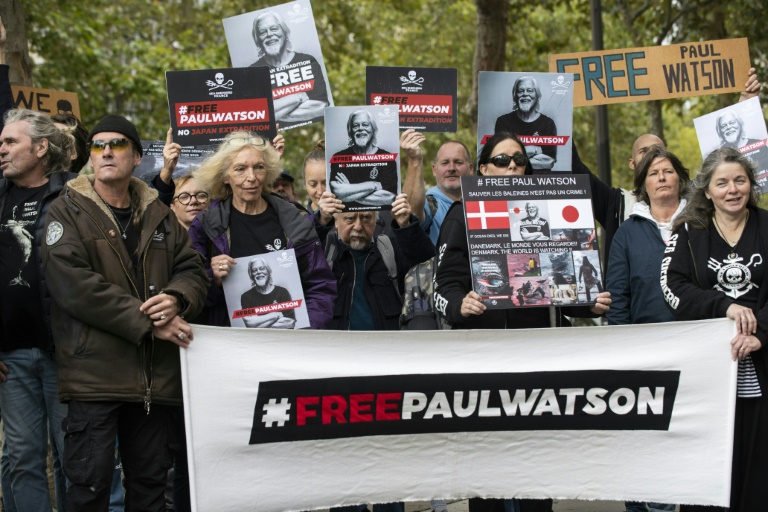On Monday, a Greenland court is set to hear a pivotal case regarding the extended detention of anti-whaling activist Paul Watson, whose incarceration has now reached four months as authorities review Japan’s extradition request. This will mark Watson’s sixth court appearance since his arrest in July in Nuuk, the capital of Greenland. Prosecutor Mariam Khalil has asked for an additional four-week detainment period, while Watson’s defense attorney, Julie Stage, is pushing for his immediate release. The 74-year-old activist’s legal troubles stem from a 2012 Japanese arrest warrant, which accuses him of causing damage to a whaling ship and injuring a crew member during a confrontation in Antarctica in 2010. The case has drawn significant public and media attention, especially given Watson’s prominence through his efforts with Sea Shepherd, an organization he founded to combat illicit whaling practices.
Watson was apprehended on July 21 when his ship, the John Paul DeJoria, docked in Nuuk for refueling while en route to confront a new Japanese whaling vessel. His lawyers argue that the grounds for his arrest are unfounded and highlight the absurdity of the ongoing hearings. The Danish Justice Ministry is actively reviewing the extradition petition from Japan and has indicated that a decision is forthcoming. If Denmark declines to extradite Watson, he would be released promptly, as pointed out by Khalil. Her anticipation is supported by claims that the charges Japan has levied against Watson would not even warrant imprisonment under Greenlandic law.
Based on Japan’s accusations, Watson allegedly used a stink bomb to incapacitate a crew member on the whaling ship Shonan Maru 2 during an altercation in 2010. His defense asserts that evidence, including video footage, can demonstrate the crew member was not present during the incident, but the Nuuk court has not entertained this evidence. The prosecution contends that these legal proceedings are critical; however, Watson’s supporters, including prominent figures like conservationist Jane Goodall, have labeled the extradition pursuit as unjust. Goodall and others have implored the French government to grant Watson political asylum, signaling widespread backing from the public, as evidenced by a petition that has garnered over 210,000 signatures.
Watson’s plight highlights broader issues surrounding environmental activism and international legal frameworks. His legal representation has contacted the UN’s special rapporteur on environmental defenders, suggesting that Watson could face inhumane treatment should he be extradited to Japan. Discussions surrounding the legality of the charges, the implications of extradition, and Watson’s potential treatment in Japanese prisons are central threads in this unfolding saga. Divergent opinions on the case reflect the complexity of enforcing environmental laws across national borders, particularly in a domain as contentious as whaling.
Additionally, the Danish Ministry of Justice has stressed its approach to the extradition request requires careful deliberation in collaboration with relevant local authorities. The impending decision is critical, not only for Watson’s freedom but also for setting a precedent regarding the treatment of environmental activists in an international context. Watson’s legal team maintains that the extradition system should not be used to silence those who confront harm done to the planet. They aim to demonstrate that the charges against him are not serious enough to warrant such severe consequences, advocating for a legal framework that supports environmental defense.
As Watson navigates the complexities of his situation, he seeks to return to France, where he has lived since July 2023, and reunite with his two young children. His application for French citizenship is currently under consideration, and the final outcomes of both his potential extradition and citizenship request remain uncertain. The outcome of his hearing will not only determine Watson’s immediate future but also reflect on global attitudes towards anti-whaling activism and the legal protections available for those advocating for environmental issues. The public and political response to his case represents a convergence of environmental advocacy and legal activism at a time when the survival of marine ecosystems is becoming increasingly precarious.

